Thomas Brown - Lectures on the Philosophy of the Human Mind (Vol. 1 of 3)
Здесь есть возможность читать онлайн «Thomas Brown - Lectures on the Philosophy of the Human Mind (Vol. 1 of 3)» — ознакомительный отрывок электронной книги совершенно бесплатно, а после прочтения отрывка купить полную версию. В некоторых случаях можно слушать аудио, скачать через торрент в формате fb2 и присутствует краткое содержание. Жанр: foreign_antique, foreign_prose, на английском языке. Описание произведения, (предисловие) а так же отзывы посетителей доступны на портале библиотеки ЛибКат.
- Название:Lectures on the Philosophy of the Human Mind (Vol. 1 of 3)
- Автор:
- Жанр:
- Год:неизвестен
- ISBN:нет данных
- Рейтинг книги:5 / 5. Голосов: 1
-
Избранное:Добавить в избранное
- Отзывы:
-
Ваша оценка:
- 100
- 1
- 2
- 3
- 4
- 5
Lectures on the Philosophy of the Human Mind (Vol. 1 of 3): краткое содержание, описание и аннотация
Предлагаем к чтению аннотацию, описание, краткое содержание или предисловие (зависит от того, что написал сам автор книги «Lectures on the Philosophy of the Human Mind (Vol. 1 of 3)»). Если вы не нашли необходимую информацию о книге — напишите в комментариях, мы постараемся отыскать её.
Lectures on the Philosophy of the Human Mind (Vol. 1 of 3) — читать онлайн ознакомительный отрывок
Ниже представлен текст книги, разбитый по страницам. Система сохранения места последней прочитанной страницы, позволяет с удобством читать онлайн бесплатно книгу «Lectures on the Philosophy of the Human Mind (Vol. 1 of 3)», без необходимости каждый раз заново искать на чём Вы остановились. Поставьте закладку, и сможете в любой момент перейти на страницу, на которой закончили чтение.
Интервал:
Закладка:
To know the powers of nature, is, then, nothing more than to know what antecedents are and will be invariable , followed by what consequents; for this invariableness, and not any distinct existence, is all which the shorter term power, in any case, expresses; and this, and this alone, is the true object of physical inquiry, in that second point of view, in which we have considered it, as directed to the successions of events.
Whenever, therefore, the question is put, as to any object, What is it? there are two answers, and only two answers, that can be given with meaning. We may regard it as it exists in space , and state the elements that co-exist in it, or rather that constitute it; or we may regard it, as it exists in time , and state, in all the series of changes, of which it forms an invariable part, the objects to which it is related as antecedent or consequent.
To combine these two views of nature, as it exists in space and time, and to know, with perfect accuracy, every element of every aggregate, and every series of changes, of which each forms, or can form, a part, would be to know every thing which can be physically known of the universe. To extend our mere physical inquiry still farther into the phenomena of nature, after this perfect knowledge, would be to suppose erroneously, that, in the compounds before us, of which we know every element, there is some element, not yet discovered, or, in the well-known successions of events, some antecedent or consequent as yet unobserved; or it would be to inquire without any real object of inquiry, – a sort of investigation, which, for two thousand years, was almost the sole employment of the subtile and the studious, and which is far from having perished, with those venerable follies of the schools, at which we know so well how to smile, even while we are imitating them, perhaps, with similar errors of our own. I cannot but think, for example, that, on this very subject of the connexion of events, the prevalent notions and doctrines, even of very eminent philosophers, are not far advanced beyond the verbal complexity of the four causes of which Aristotle treats, the material , the formal , the efficient , and the final ; or Plato's five causes, which Seneca, in one of his Epistles, briefly defines the id ex quo , the id a quo , the id quo , the id ad quod , and the id propter quod , 26 26 Epist. 65.
and though there were no other evidence than this one subject affords, it would still, I fear, prove sufficiently, that, with all our manifest improvements in our plans of philosophical investigation, and all the splendid discoveries to which these improvements have led, we have not wholly lost that great art, which, for so long a time, supplied the place of the whole art of philosophizing – the art of inquiring assiduously, without knowing what we are inquiring about.
It is an art, indeed, which, there is too much reason to suppose, will accompany philosophy, though always, it is to be hoped, in less and less proportion, during the whole course of its progress. There will forever be points, on which those will reason ill, who may yet reason, with perfect accuracy, on other matters. With all those sublime discoveries of modern times, which do us so much honour, and with that improved art of discovery, which is still more valuable to us than the discoveries produced by it, we must not flatter ourselves with exemption from the errors of darker ages – of ages truly worthy of the name of dark, but to which we perhaps give the name, with more readiness, because it seems to imply, that our own is an age of light. Our real comfort, in comparing ourselves with the irrefragable and subtile doctors of other times, is not that we do not sometimes reason as indefatigably ill as they, and without knowing what we are truly reasoning about, but that we do this much less frequently, and are continually lessening the number of cases, in which we reason as ill, and increasing, in proportion, the number of cases, in which we reason better, and do truly know, what objects we are seeking.
Of all the cases, however, in which it is of importance, that the mind should have precise notions of its objects of inquiry, the most important are those which relate to the subject at present considered by us; because the nature of power, in the relation which it is impossible for us not to feel of events, as reciprocally effects and causes, must enter, in a great measure, into every inquiry which we are capable of making, as to the successive phenomena, either of matter or of mind. It is of so much importance, therefore, to our future inquiries, that you should know what this universal and paramount relation is, that I have dwelt on it at a length, which I fear must have already exhausted your patience; since it is a discussion, I must confess, which requires considerable effort of attention; and which has nothing, I must also confess, to recommend it, but its dry utility. I trust, however, that you are too well acquainted with the nature of science, not to know, that it is its utility which is its primary recommendation; and that you are too desirous of advancing in it, not to disregard the occasional ruggedness of a road, which is far from being always rugged. It may be allowed to him, who walks only for the pleasure of the moment, to turn away from every path, in which he has not flowers and verdure beneath his feet, and beauty wherever he looks around. But what should we have thought of the competitor of the Olympic course, whose object was the glory of a prize, contested by the proudest of his contemporary heroes, if, with that illustrious reward before him, – with strength and agility that might ensure him the possession of it, – and with all the assembled multitudes of Greece to witness his triumph, he had turned away, from the contest, and the victory, because he was not to tread on softness, and to be refreshed with fragrance, as he moved along! In that knowledge which awaits your studies, in the various sciences to which your attention may be turned, you have a much nobler prize before you; and, therefore, I shall not hesitate to call forth occasionally all the vigour of your attention, at the risk of a little temporary fatigue, as often as it shall appear to me, that, by exciting you to more than ordinary intellectual activity, I can facilitate your acquisition of a reward, which the listless exertions of the indolent never can obtain, and which is as truly the prize of strenuous effort, as the Palms of the Circus or the Course.
LECTURE VII
ON POWER, CAUSE, AND EFFECT
My last Lecture, Gentlemen, was chiefly employed in examining what it is , which is the real object of inquiry, when we consider the phenomena of nature as successive; and we found, that, by an original principle of our constitution, we are led, from the mere observation of change, to believe, that, when similar circumstances recur, the changes, which we observed, will also recur in the same order, – that there is hence conceived by us to be a permanent relation of one event, as invariably antecedent, to another event, as invariably consequent, – and that this permanent relation is all which constitutes power . It is a word, indeed, of much seeming mystery; but all which is supposed to be mysterious and perplexing in it vanishes, when it is regarded in its true light as only a short general term, expressive of invariable antecedence, or, in other words, of that, which cannot exist in certain circumstances, without being immediately followed by a certain definite event, which we denominate an effect, in reference to the antecedent, which we denominate a cause. To express, shortly, what appears to me to be the only intelligible meaning of the three most important words in physics, immediate invariable antecedence , is power , – the immediate invariable antecedent , in any sequence, is a cause , – the immediate invariable consequent is the correlative effect .
Читать дальшеИнтервал:
Закладка:
Похожие книги на «Lectures on the Philosophy of the Human Mind (Vol. 1 of 3)»
Представляем Вашему вниманию похожие книги на «Lectures on the Philosophy of the Human Mind (Vol. 1 of 3)» списком для выбора. Мы отобрали схожую по названию и смыслу литературу в надежде предоставить читателям больше вариантов отыскать новые, интересные, ещё непрочитанные произведения.
Обсуждение, отзывы о книге «Lectures on the Philosophy of the Human Mind (Vol. 1 of 3)» и просто собственные мнения читателей. Оставьте ваши комментарии, напишите, что Вы думаете о произведении, его смысле или главных героях. Укажите что конкретно понравилось, а что нет, и почему Вы так считаете.
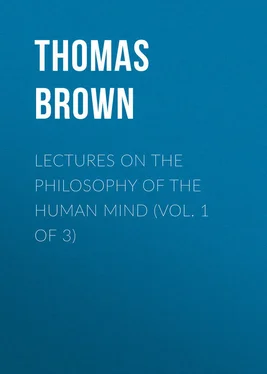


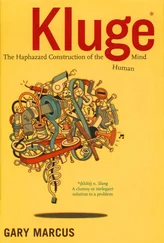

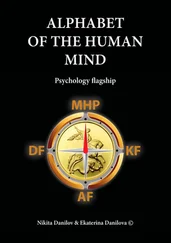


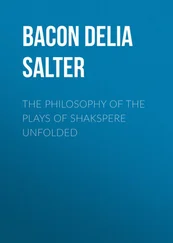
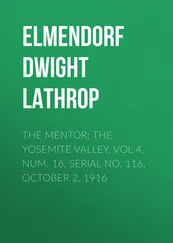


![Anne Blunt - A Pilgrimage to Nejd, the Cradle of the Arab Race. Vol. 1 [of 2]](/books/749489/anne-blunt-a-pilgrimage-to-nejd-the-cradle-of-the-thumb.webp)